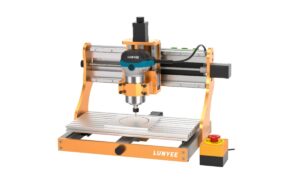In the automation industry, machining plays a crucial role in the manufacturing process. CNC Machining refers to the process of removing material from a workpiece to create a desired shape and size using various cutting tools.
It is an essential step in the manufacturing of machine parts and components that are used in automation systems.
Significance Of Machining For The Automation Industry
Advancement in Technology
The automation industry is continuously evolving, and as technology advances, so does the demand for precision and accuracy in manufacturing. Machining has become an integral part of this process, as it enables the creation of complex shapes and designs that are necessary for the automation industry.
It is a process that requires skill, expertise, and the use of advanced technology to produce high-quality machine parts and components.
Primary Advantages
One of the primary advantages of machining in the automation industry is the ability to produce parts with tight tolerances.
Tolerances refer to the allowable deviation from a specified dimension, and in the automation industry, even the smallest deviation can affect the performance of the final product. Machining allows for precise control over the dimensions of a part, ensuring that it meets the required tolerances.
Enables the Creation of Complexity Different Shapes and Designs
Machining also enables the creation of complex shapes and designs that are necessary for the automation industry.
With the use of advanced computer-aided design (CAD) software, engineers can design parts and components with intricate geometries that would be impossible to create using other manufacturing processes.
Machining allows for the creation of parts with tight corners, intricate curves, and other complex shapes that are necessary for automation systems.
Rapidly, Perfectly & Time Saving
In addition to precision and complexity, machining also offers speed and efficiency in the manufacturing process. With the use of computer numerical control (CNC) machines, parts can be manufactured quickly and accurately.
We use computer programs to control cutting tool movement, resulting in precise and repeatable cuts. This not only reduces the time required to manufacture a part but also ensures that each part is identical in size and shape.
Machining in Repair & maintenance
The use of machining in the automation industry is not limited to the creation of new parts and components.
Machining is also used in the repair and maintenance of existing parts and components. With the use of advanced techniques such as welding, brazing, and soldering, damaged parts can be repaired and restored to their original condition.
This can save companies a significant amount of money by reducing the need to replace expensive parts.
Role of Machining in Development & Testing
Machining also plays a critical role in the development and testing of new automation systems. Before a new system can be put into production, prototypes must be created and tested to ensure that they meet the required specifications.
Machining allows engineers to create prototypes quickly and accurately, enabling them to adjust and modify as needed before moving to full-scale production.
Conclusion
Machining plays a vital role in the automation industry. It enables the creation of precise, complex, and efficient machine parts and components that are necessary for automation systems to function.
Machining offers speed, efficiency, and accuracy in the manufacturing process, allowing companies to produce high-quality parts quickly and cost-effectively.
As the automation industry continues to evolve, machining will remain an integral part of the manufacturing process, driving innovation and advancing the industry forward.



































